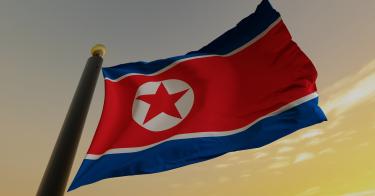Last month’s Russia-North Korea summit was a reminder of the dangers of bilateral military cooperation between the two rogue regimes.
Pyongyang has provided millions of artillery rounds and dozens of missiles to prolong Moscow’s brutal invasion of Ukraine. In return, Pyongyang receives economic benefits and potentially high-end military technology.
Less noticed were pledges by Russian President Vladimir Putin and North Korean leader Kim Jong Un to augment bilateral trade. Resulting measures could increase the already extensive numbers of North Korean workers in Russia. These workers, along with those sent to China and other countries, work in violation of UN resolutions. They allow the Kim regime to evade international sanctions by earning foreign currency for its prohibited nuclear and missile programs.
North Korea, for decades, sent its citizens to work abroad for wages that benefit the regime. However, UN Security Council Resolution 2397, adopted in December 2017, required UN member-states to repatriate all North Korean workers within their borders by December 2019.
>>> The Russia-North Korea Military Pact Is a Big Problem
Despite this edict, more than 100,000 North Korean laborers continue to work in 40 countries, though predominantly in China and Russia. They generate an estimated annual revenue of $500 million for Pyongyang. They labor in factories, agriculture, construction, logging camps, and mining operations. North Korea also operates restaurants in at least five countries, generating $700 million in annual revenue for the regime.
In December 2023, a Russian Construction Ministry official announced that Moscow requested 2,000 workers from North Korea in order to address labor shortages in Siberia. In February 2024, hundreds of North Korean workers were seen disembarking from a train near Vladivostok. In April 2024, North Korea sent workers to the Russian-occupied Donbas region in Eastern Ukraine.
In 2022, Chinese officials indicated there were 80,000 North Koreans just in Dandong, a seafood industry hub. Large groups of North Koreans have been sent to work at clothing and electronics parts factories in China’s Jilin Province.
North Korean overseas workers are exploited. They work in highly abusive conditions and in violation of international labor laws. The workers usually receive only 10% to 30% of their salary, with the rest provided directly to the North Korean government. Workers have to relinquish their passports and often work between 14 and 16 hours a day, with no holidays, except perhaps for one day a month. They can suffer confinement, beatings, and sexual exploitation.
Recently, North Korean workers in China engaged in strikes and riots after not receiving wages for several years. In January 2024, some 2,000 North Korean workers occupied a factory in Jilin Province, beating to death a North Korean official in charge of managing them, to protest unpaid wages.
In addition to laborers, North Korea sends IT workers overseas for activities both illicit and legitimate (though still UN-proscribed). The North Koreans use false foreign identities to fraudulently gain employment as freelance computer engineers with technology and virtual currency companies. Thousands of highly skilled North Korean information technology workers currently operate in Belarus, China, Malaysia, the Philippines, Russia, and Singapore.
Some North Korean IT workers can earn more than $300,000 per year, with 90% of the wages going to the regime. Most of the North Korean IT workers are engaged in non-hacking computer activity, but they are often involved in virtual currency companies and are able to launder illicitly obtained funds back to North Korea. Some use their access to foreign companies to carry out malicious cyber activities.
In May 2024, the United States announced charges against an Arizona woman, a Ukrainian man, and three foreign nationals on allegations of illegally helping North Korean IT workers pose as U.S. citizens and gain employment with 300 unwitting U.S. companies. The scam provided money and proprietary information to the North Korean regime.
>>> The Putin Visit Could Mean Russia Makes North Korea’s Military Even Deadlier
Identifying and exposing North Korean violations will be harder after Russia vetoed the annual reauthorization mandate for the UN Panel of Experts created in 2009 to identify evidence of violations of UN resolutions. The panel also monitored and publicized UN member-states’ compliance with enforcing required sanctions.
Half-hearted enforcement of U.S. laws and UN sanctions by the Biden administration undermines the effectiveness of international efforts to hold North Korea, and other nations, accountable for violating those laws. The U.S. has also long refrained from going after Chinese and Russian banks and businesses assisting North Korea’s illicit nuclear and missile programs.
The U.S. should target North Korean overseas workers by requesting countries eject North Korean workers lest they face secondary sanctions against their companies, government agencies, or financial institutions.
Similarly, Washington should impose sanctions against any entity supporting North Korean cybercrimes and malicious cyber activity, including by providing technology, equipment, training, and safe haven to North Korean hackers.
Washington should take the lead in working with foreign governments to reduce Pyongyang’s use of illicit means to finance its growing military threat to the region and to the American homeland.
This piece originally appeared in The National Interest https://nationalinterest.org/blog/korea-watch/dont-let-north-korea-and-russia-successfully-evade-sanctions-212004



